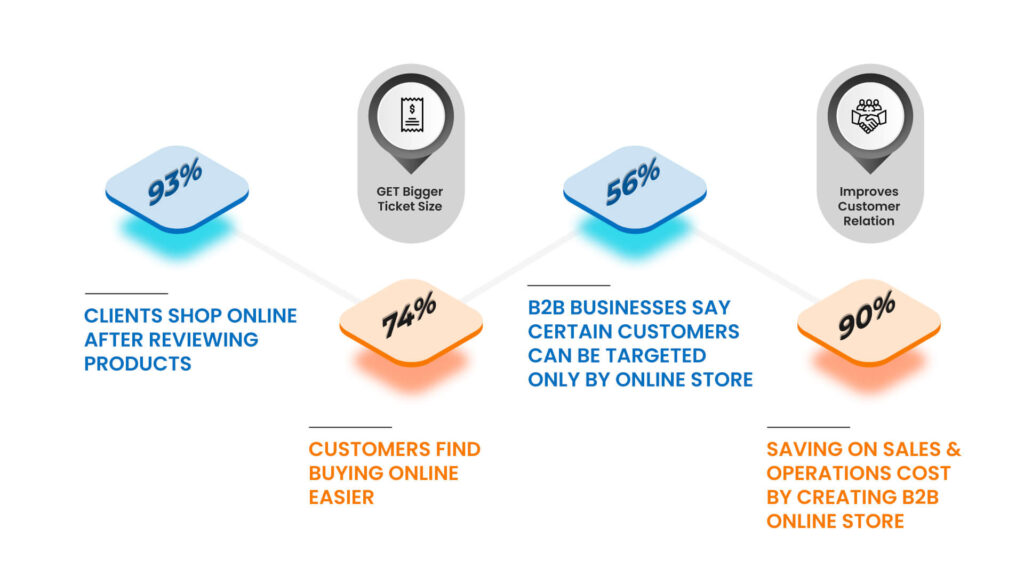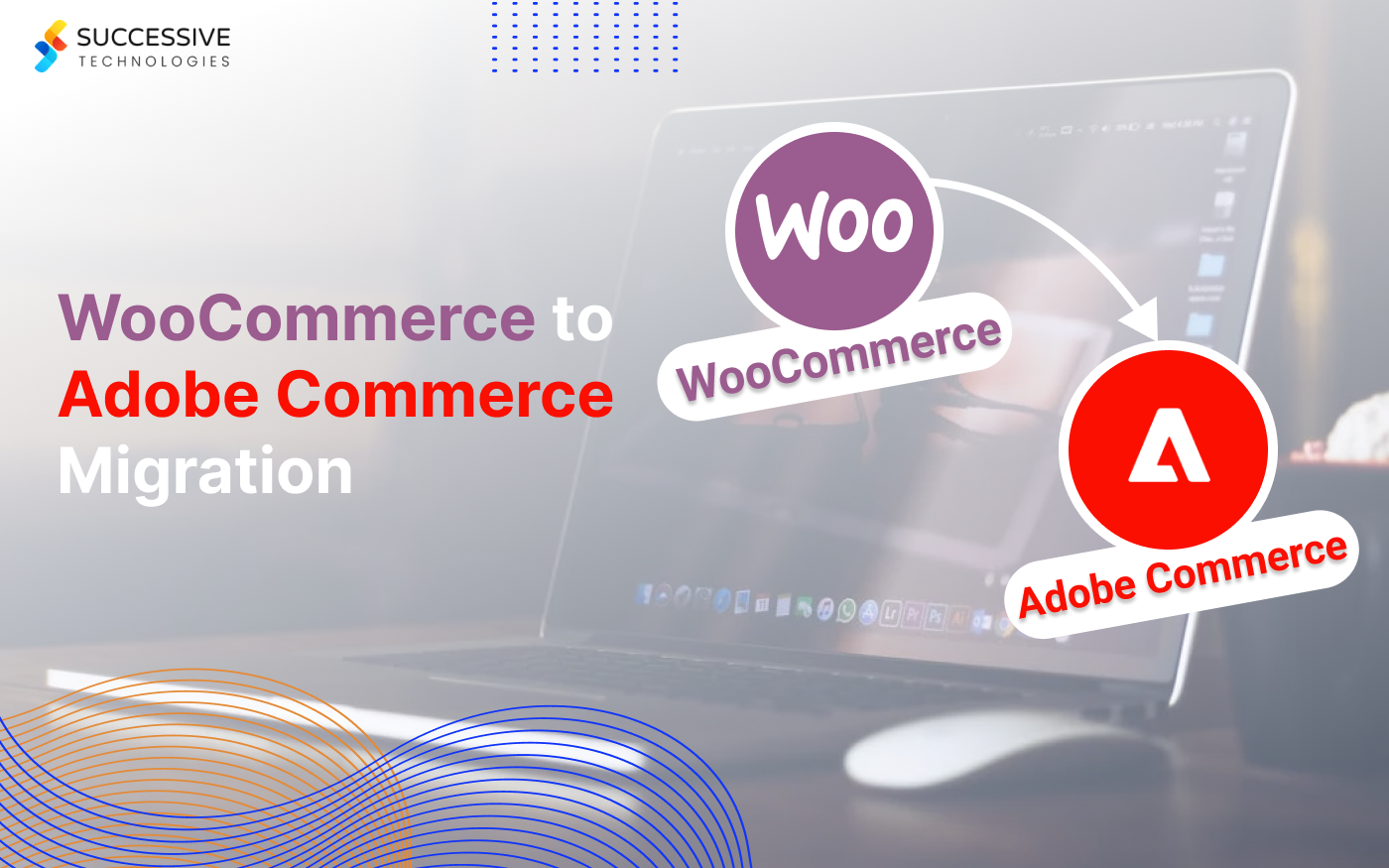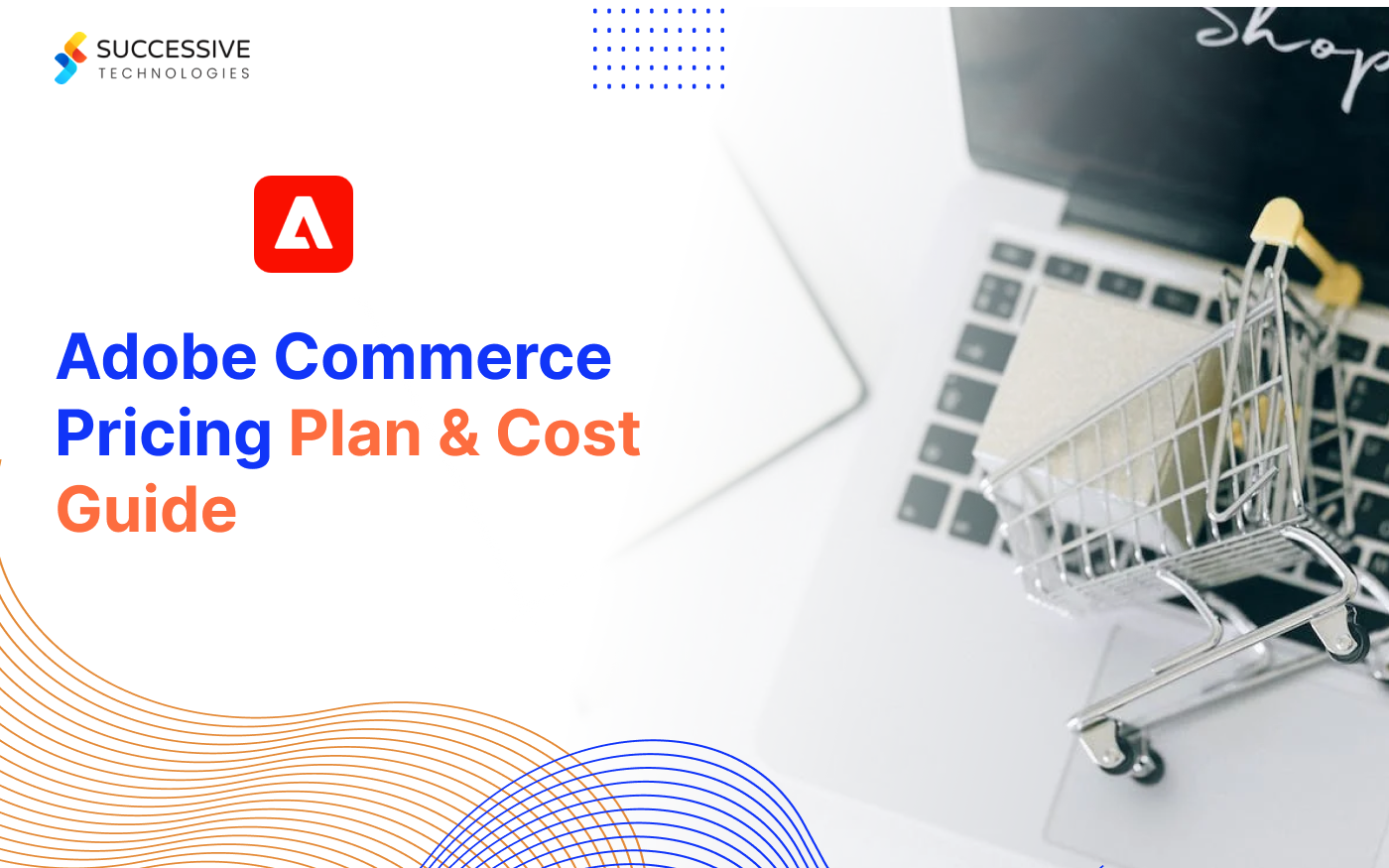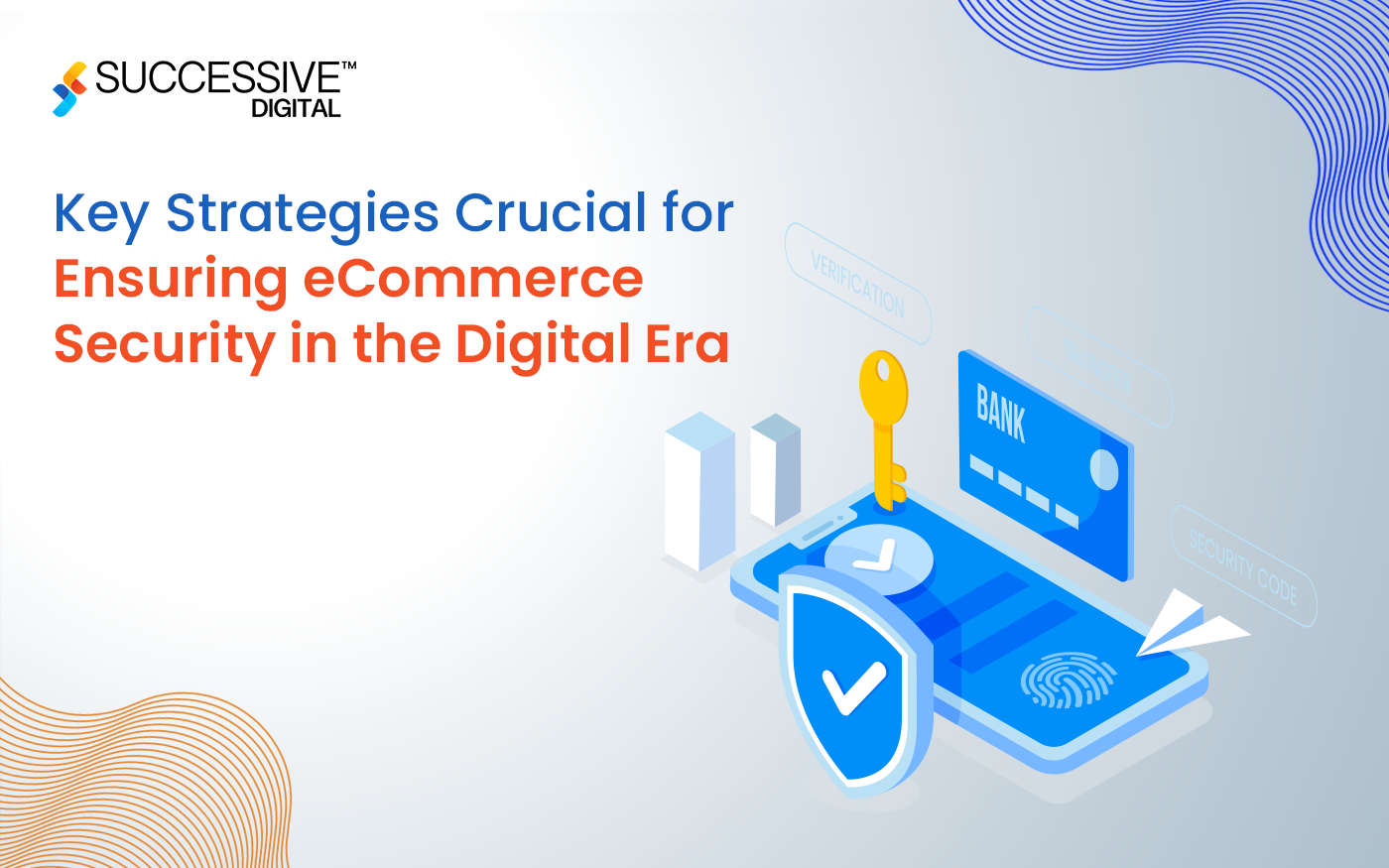With the constantly evolving demand for mobile commerce and customer personalization, the adoption rate of online marketplaces has also increased across the consumer goods market. Though the emerging B2B startups and mid-size enterprises have always been slow adopters in leveraging the potential of the E-commerce bandwagon, the companies are now undergoing a rapid transition from the traditional offline territory towards complete digital commerce, to stay competitive.
Did you know?
- According to the US Department of Commerce, the B2B eCommerce industry has grown four times faster than the current B2C businesses
- The growth of B2B eCommerce sales is at its record highest OR at an all-time high
- By the end of 2023, B2B E-commerce transactions in the US alone are expected to reach $1.8 trillion, equivalent to almost 17% of the United States B2B economy
- More than 80% of B2B procurement spending will be via online platforms in the next five years
In today’s competitive landscape, it is imperative to have a strong digital identity to stay ahead. For this, many B2B retail companies typically rely on ERP technologies and self-service chatbots to generate leads, but there are several other benefits of such platforms:
- Better sales engagement
- Seamless process management
- Improved brand awareness
- Enhanced efficiency
- More reach, more buyers
However, to maximize engagement and provide an intuitive customer experience, you need to find the eCommerce platform that perfectly aligns with your objectives. In this blog post, we’ll be guiding you with easy yet impacting tips on how to choose the best B2B eCommerce platform to help drive better engagement and revenue.

How to Choose the Right B2B eCommerce Platform
While choosing a perfect B2B E-commerce platform, you must consider the following 9 key parameters to ensure data-driven and hence profitable business outcomes.
- Functionality
Unlike B2C commerce, B2B businesses face multiple challenges like longer purchase cycles, purchase approvals, budget constraints, recurring orders/payments and complex procurement processes. To avoid such hurdles, you must select a platform that perfectly matches your unique business requirements, simplifies complex tasks and provides easy & straightforward navigation with faster problem-solving capabilities.
Empowering your customers with immersive functionalities, advanced features, easy shipping accesses, live order tracking and improved account management will enhance the user purchase journey and drive higher brand value.
- Responsiveness
Mcommerce growth is booming rapidly. Nowadays, customers look for a website that is responsive enough to fit all the screens competently. As more B2B buyers research and place orders on mobile devices, tablets, the B2B sellers must focus on making their web content pixel perfect, attractive, optimized and easily accessible. In addition, your web content must be able to render correctly across multiple devices. Allowing your best customers to order on the go conveniently bolsters higher conversion rates, drives consistency in design & brand and attracts a broader audience to your business.
- Personalized B2B Product Catalog Management
Product catalog management is a crucial element for building a strong online presence. It enables users to find exactly what they’re searching for and provides an aesthetic feel while purchasing based on the information provided. With streamlined catalog management, you can easily upload, organize and manage your products. Therefore, an ideal E-commerce platform must have accessible and flexible catalog management functionalities to make seamless, streamlined product listing and management. Also, the availability of various filters can help customers narrow down their requirements to a micro-level for better search results.
- Scalability
According to experts, 55% of mobile users abandon a website if the loading speed exceeds 3 seconds. Thus, long-term growth and scalability become the most important factors to consider while scrutinizing your B2B business platform. The ideal E-commerce platform must offer the freedom to alter the front-end and backend functionalities according to business requirements. As a leading eCommerce development company, Successive Digital delivers robust and enterprise-grade cloud-based E-commerce solutions that provide you a resilient, scalable architecture with the liberty to expand or limit your business, as per the market scenario. We help you achieve long-term goals, better user experience and higher business growth by diving deeper into your website metrics & overall E-commerce SEO strategies.
- Integrations
If your E-commerce business is expanding and you haven’t implemented Enterprise Resource Planning (ERP) integrations to your website, then your business might not survive in the long run. Why? ERP Integration connects, automates, and synchronizes your ERP software with other business applications to enhance the platform compatibility and streamline complex functionalities like order fulfillment, inventory synchronization and product catalog management.
- Payment Gateways
To capture maximum sales prospects, deliver a frictionless checkout experience and boost customer loyalty, your E-commerce store must have multiple payment gateways/channels. By offering personalized pricing or pricing based on IP addresses, your E-commerce business can simplify the Accounts Payable (AP) and Accounts Receivable (AR) processes, improve the overall cash flow management and gain exceptional profits. Flexible pricing gives convenience and resilience to the users via which they can use their native currency for shopping.
- Multilingual Platform
Do you want to give your global business exposure? Then you must opt for a comprehensive B2B multilingual E-commerce platform that will target a wide range of international audiences and expand your global reach. Globalizing your business fetches higher revenue and gives your brand an entirely new market & audience to explore.
- User-Specific Pricing Strategies
A perfect eCommerce platform must offer customer-specific pricing and items for sale to maximize profit per customer and drive more traffic. In order to achieve high sales volume, you must opt for a platform that offers the following:
- Traditional shopping experience
- Custom “request a quote”
- Price negotiation system
- Subscription-based model
Additional features like minimum order check, variable pricing, shipping regulations must also be considered for making the shopping process easier, faster and more convenient.
- Marketing & Promotions
Promotions and marketing have always been game-changers in the digital ecosystem. According to a survey, about 85% of brand success depends on marketing, promotions and branding strategies. Therefore, choose a platform that offers product promotion and marketing solutions, including discount coupons, promo codes, free shipping and other marketing schemes to boost product sales.
Conclusion
Choosing the right B2B Commerce platform for your business is entirely dependent on your goals, objectives and requirements. Therefore, you must begin by analyzing the strengths, challenges and possibilities for your venture. At Successive Digital, we combine our deep domain expertise with data-driven analytics to optimize retail operations and deliver omnichannel customer experiences. Our retail technology solutions fuel the digital transformation practices and unlock the potential for a more resilient and sustainable eCommerce business model and ecosystem.












